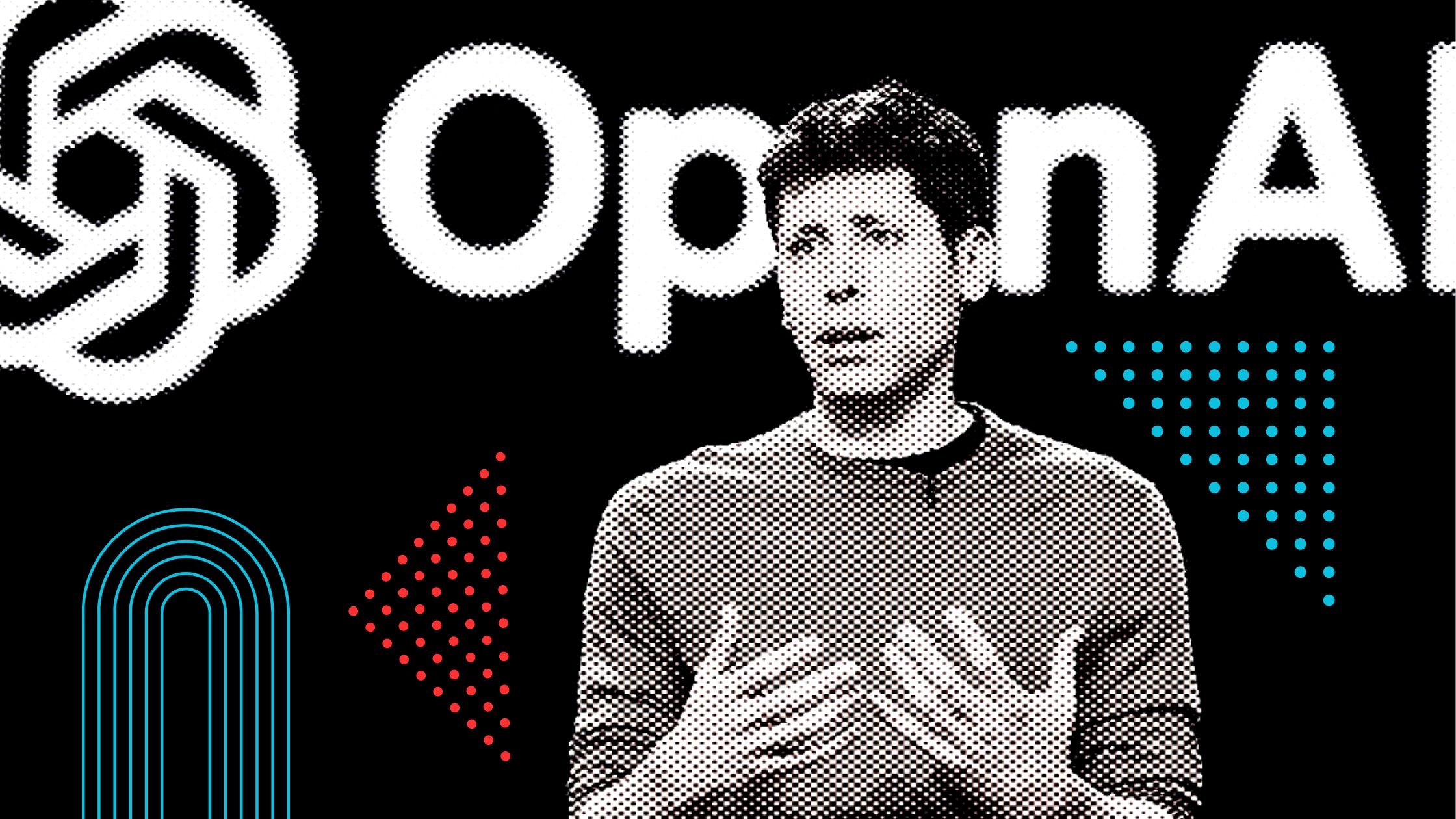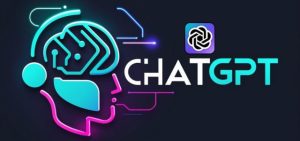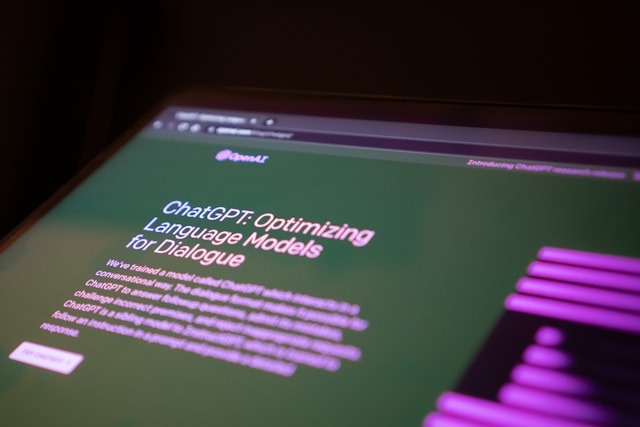It’s not every day that a quiet coder becomes the world’s most-watched tech CEO almost overnight. But that’s exactly what happened when Sam Altman unveiled ChatGPT to the public. In just five days, the AI chatbot surpassed one million users, a growth rate that left even the largest social networks looking slow by comparison.
Almost instantly, Altman was everywhere: podcasts, news interviews, congressional hearings. The former startup hustler and Y Combinator chief transformed into the public face of artificial intelligence. And while most CEOs spend their careers trying to look polished and predictable, Altman has never fit the mold.
He’s a brilliant coder who began programming at the age of eight. An investor who backed some of Silicon Valley’s biggest successes. A billionaire who quietly prepares for worst-case scenarios in underground bunkers.
If you’ve ever wondered how one person could blend ambition, curiosity, and caution into a single career—and reshape an entire industry in the process—Sam Altman’s story has plenty to teach.
Early Life and the Spark of Curiosity
Sam Altman didn’t grow up in Silicon Valley. He was raised in St. Louis, Missouri, far from the tech startup epicenter. But his tech journey began early. He learned to code at just 8 years old, starting with a Macintosh computer and curiosity that wouldn’t quit.
From a young age, Altman was fascinated by how things worked. He once shared in interviews that taking apart gadgets, exploring systems, and figuring out how to build things became second nature. This passion didn’t just stay in the realm of a hobby; it was a clear hint at what would eventually become a billion-dollar trajectory.
Altman’s upbringing was both grounded and quietly ambitious. His family supported his interests, and those early experiences helped shape his worldview: problem-solving wasn’t just fun; it was foundational.
By his twenties, he was already launching startups. According to Nicolai Svane Kristensen, co-founder of BrandWorks, writing on LinkedIn, Sam Altman began coding when he was just 8 years old and, by the age of 28, had become president of Y Combinator, one of the world’s most prestigious startup accelerators. That role put him in direct contact with companies like Airbnb, Dropbox, and Stripe—helping shape the next generation of tech giants.
That advice and the mindset behind it have fueled not just his success but also inspired countless others navigating the fast-paced world of tech and innovation.
Y Combinator: The Startup Kingmaker
Before becoming a global figure in AI, Sam Altman was already shaping the future of tech, both as a founder and as a kingmaker.
His journey with Y Combinator (YC) began on the other side of the table. In 2005, Altman co-founded Loopt, a location-based social networking app that became one of the early startups accepted into YC’s then-nascent accelerator program. Though Loopt eventually shut down, it gave him a firsthand look at the realities of startup life—building, pitching, failing, and learning fast.
In 2014, he returned to YC, not as a founder, but as its president. Under his leadership, YC scaled massively. He broadened the accelerator’s influence by launching the YC Fellowship and YC Continuity Fund, and helped back some of the most iconic names in tech. Airbnb, Dropbox, Stripe, and Reddit all passed through YC’s pipeline, gaining funding and Altman’s strategic insight.
According to an article by Business Insider, during this time, Altman wasn’t just writing checks; he was refining a playbook for identifying ambitious founders and spotting ideas that could redefine industries. He also invested personally in companies like Reddit and Helion, a nuclear fusion startup. Beyond his professional life, he built a reputation as a fiercely curious polymath: someone who races sports cars with his husband and even preps for worst-case scenarios.
This unconventional mix of futurist mindset, operational rigor, and an appetite for moonshot bets shaped his thinking about innovation and laid the groundwork for the AI breakthroughs he would later champion.
Betting Big on AI: The Birth of OpenAI
After years immersed in startups, Sam Altman set his sights on a challenge that felt even bigger: artificial intelligence with the power to reshape civilization.
In 2015, he teamed up with Elon Musk and several prominent researchers to launch OpenAI, a research lab created with an ambitious mission: ‘to ensure that artificial general intelligence (AGI) benefits all of humanity.’ From the start, Altman believed that AI would be the most important technology of this century, carrying both immense promise and existential risk.
While many labs focused on proprietary models, OpenAI committed to a more open approach to research and transparency. The lab quickly started breaking new ground. Early achievements included creating AI systems that could master complex video games, generate humanlike text, and tackle reinforcement learning challenges that once seemed impossible.
Two of OpenAI’s most famous breakthroughs under Altman’s leadership, GPT and DALL·E, would eventually capture global attention. GPT evolved from a promising language model into ChatGPT, an application so compelling it signed up one million users within five days of launch. DALL·E, meanwhile, turned text prompts into vivid, original images, igniting both fascination and debate about AI’s creative potential.
As these tools gained traction, Altman faced the delicate balancing act of staying true to OpenAI’s nonprofit ideals: sharing knowledge and maximizing positive impact, while also finding ways to fund the immense computational costs of training large models. The decision to create a “capped-profit” arm of the company drew scrutiny but ultimately allowed OpenAI to raise billions and accelerate progress.
Under Altman’s watch, OpenAI went from an ambitious idea to the company synonymous with the AI revolution, driving headlines, transforming industries, and sparking questions about how humanity should harness such powerful technology.
Leadership Style and Vision
Sam Altman is known for blending a calm demeanor with a relentless drive to tackle ambitious goals. When it comes to managing teams, he favors clear communication and high trust, often empowering talented people to pursue ideas independently rather than micromanaging every detail.
He has a reputation for long-term thinking and a willingness to take big risks in pursuit of breakthroughs. This mindset shows up in everything from his early investments in nuclear fusion companies to the bet on artificial intelligence transforming daily life.
Peter Drucker once said, “The best way to predict the future is to create it.” That belief in shaping the future instead of waiting for it guides how he makes decisions and inspires teams to work on problems that matter.
As both CEO and public figure, he balances technical leadership with the storytelling required to build trust in emerging technologies. Whether he is pitching investors, recruiting engineers, or discussing AI’s risks, Altman consistently positions himself as someone willing to ask hard questions while keeping an eye on the long game.
The Billionaire Prepper: A Contradictory Persona
Sam Altman isn’t your typical tech CEO. Alongside leading one of the most advanced AI companies in the world, he’s also known for preparing for worst-case scenarios, including stockpiling supplies and securing access to a private bunker. According to Business Insider, Altman has openly acknowledged his doomsday prepping habits, citing concerns about everything from pandemics to AI-related existential threats.
Far from paranoia, this reflects his deep understanding of high-stakes risk. While he spends his professional life building transformative tools like ChatGPT and DALL·E, he’s also aware of the potential downsides. This duality—futurist optimist by day, cautious planner by night—says a lot about his worldview.
To Altman, preparing for collapse doesn’t contradict building the future. It complements it. He’s betting big on innovation but not blindly. That mix of ambition and realism is part of what sets him apart—and likely a key reason people trust him to lead the AI revolution responsibly.
Criticism and Controversy
No tech visionary escapes scrutiny, and Sam Altman is no exception. As OpenAI’s influence has grown, so have debates about whether artificial intelligence can be developed and deployed safely. Some researchers and ethicists argue that AI models like ChatGPT could amplify misinformation, disrupt jobs, or concentrate power in the hands of a few companies.
Another point of tension is OpenAI’s shift from a nonprofit mission to a hybrid model with significant commercial ambitions. The company originally pledged to keep advanced AI research transparent and community-focused. But after partnering with Microsoft and launching paid products, critics have questioned whether profit now outweighs public interest.
Altman has responded to these concerns by emphasizing OpenAI’s long-term commitment to safety and shared benefits. He frequently speaks about the importance of building guardrails and collaborating with policymakers. Still, not everyone is convinced that any one company, no matter how principled, can control the societal impact of AI.
This push and pull between innovation and caution has become one of the defining stories of Altman’s leadership. It’s also a reminder that shaping the future rarely happens without controversy.
Lessons You Can Learn From Sam Altman
Sam Altman’s rise from a curious kid with a computer to the CEO of one of the most influential AI companies in the world isn’t just luck or timing; it’s built on repeatable habits and mindsets. Here are five actionable takeaways you can borrow and apply right now:
1. Bet on Yourself (Even Before You’re “Ready”)
Altman left Stanford early and launched his first startup, Loopt, when he saw an opportunity. He didn’t wait for the perfect moment; he created it. Whether you’re switching careers, starting a side hustle, or launching a bold idea, don’t wait for permission. Leap and build as you go.
2. Focus is a Superpower
One of Altman’s biggest productivity rules is ruthless prioritization. He makes lists, avoids unnecessary meetings, and protects large blocks of time for deep work. Instead of chasing every opportunity, he doubles down on the few that matter most. In your life, focus could mean setting one clear financial goal or cutting distractions that don’t serve your future.
3. Let Compounding Work in Your Favor
In his own words, Altman says, “I try to prioritize in a way that generates momentum. The more I get done, the better I feel.“ In reality, compound growth applies to careers just like it does to money. Small wins, repeated consistently, build momentum. Whether you’re learning to code, improving your finances, or building a brand, don’t underestimate the power of steady effort. Long-term consistency beats short-term hustle every time.
4. Learn Fast and Learn Always
Altman believes that in a fast-changing world, learning is your greatest asset. He surrounds himself with smart, curious people and stays open to new ideas. “It’s important to learn that I can learn anything I want, and that I can get better quickly.” This statement shows that you can pick up any skill rapidly if you stay motivated and immerse yourself. Read often, ask questions, take feedback seriously, and always look for ways to improve.
5. Stay Curious, Even When You’re Successful
Despite his achievements, Altman hasn’t slowed down. From AI to nuclear fusion to policy reform, he keeps exploring. Why? Because curiosity is a growth engine. It keeps you learning, evolving, and asking better questions. Whether you’re just getting started or scaling new heights, stay curious. It’s how you keep growing.
What’s Next for Altman and OpenAI
While ChatGPT and DALL·E have already transformed how people think about artificial intelligence, Sam Altman is clear that this is only the beginning. In interviews, he’s been open about his ambition to develop Artificial General Intelligence (AGI) systems that can reason, learn, and solve problems at or beyond the human level.
He’s also been vocal about the importance of thoughtful regulation. Altman has testified before Congress and spoken publicly about the need for guardrails to prevent misuse and ensure AI benefits everyone. Balancing rapid innovation with safety is a challenge he seems determined to tackle head-on.
Looking ahead, some of the most anticipated developments include:
- More powerful, multimodal models that can process text, images, audio, and video together.
- AI tools that reshape how people work, raising questions about automation, creativity, and the future of employment.
- Deeper integration into everyday life, from education to healthcare to finance.
If history is any guide, Altman will keep pushing the boundaries, blending optimism about technology’s promise with a pragmatic awareness of its risks.
Final Reflection
Sam Altman’s journey from teenage hacker to billionaire AI mogul is proof that big bets and relentless curiosity can rewrite industries. He didn’t just follow trends; he shaped them. He didn’t wait for the perfect conditions; he built systems that created them. If you take one idea from his story, let it be this: real impact starts when you trust yourself enough to try, learn fast, and keep going.
Curious about what AI will disrupt next? Stay connected. Subscribe, leave a comment, or explore more of our AI deep dives. The future is already unfolding, and you can be part of it.
- Graphic Design for Beginners: Best Tools & Tips to Start in 2026 - February 22, 2026
- How to Start a Blog in 2026 and Turn It Into a Steady Income Stream - November 10, 2025
- 2026: The Business Sectors Creating the Next Wave of Millionaires—How to Tap into - November 6, 2025








